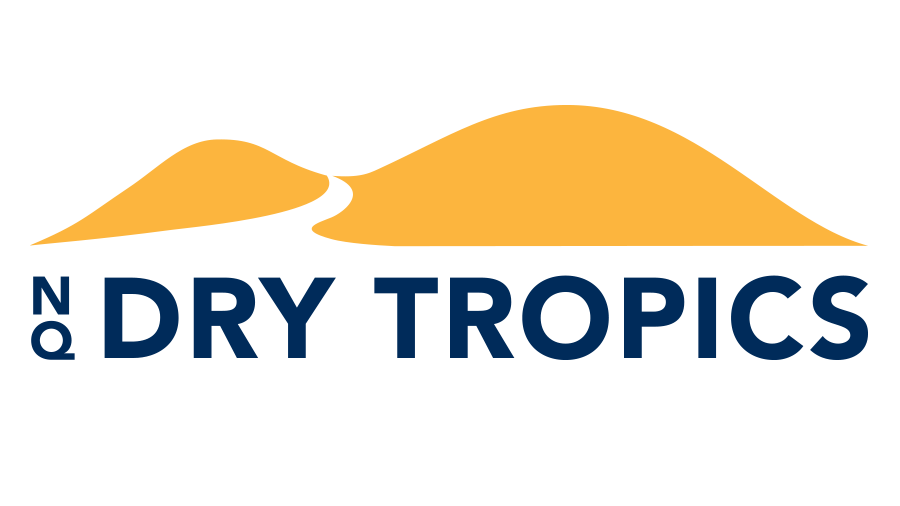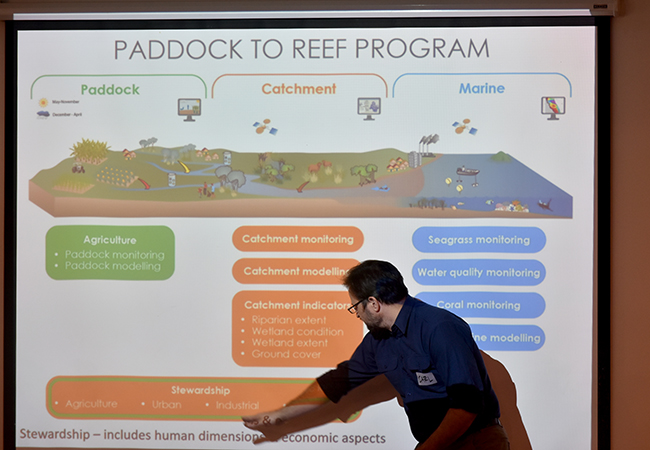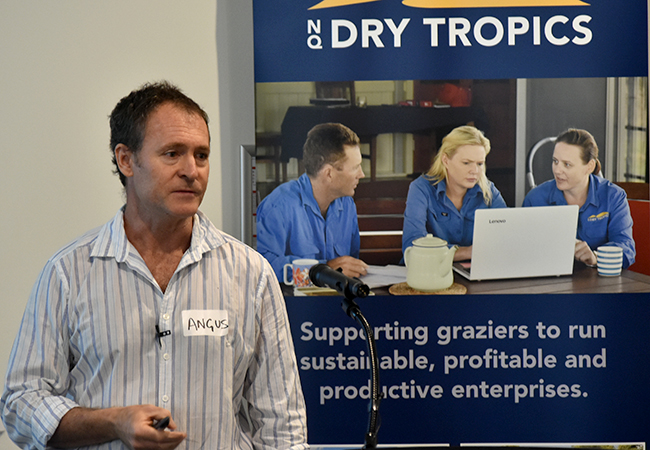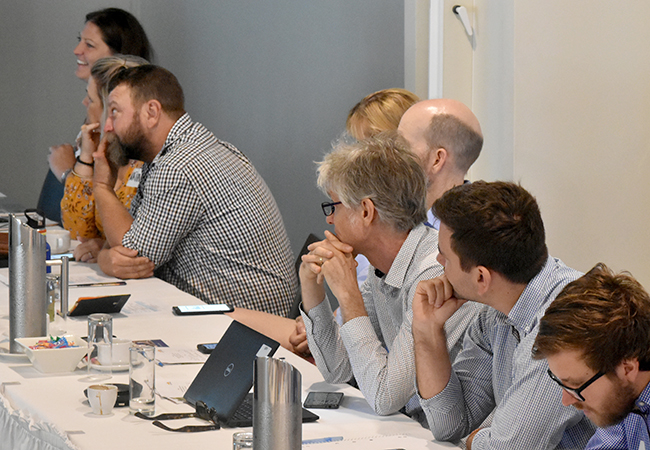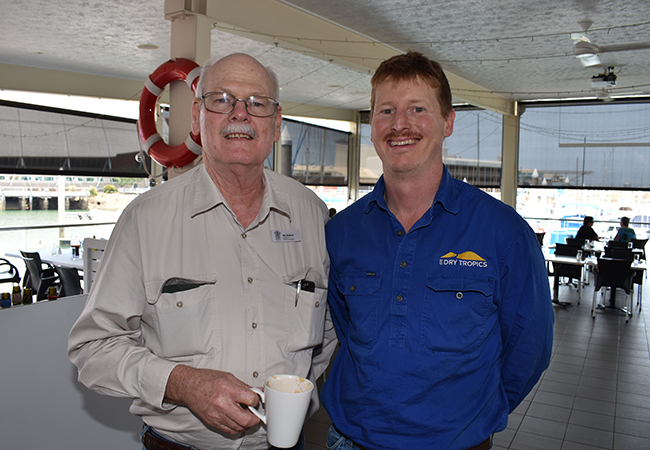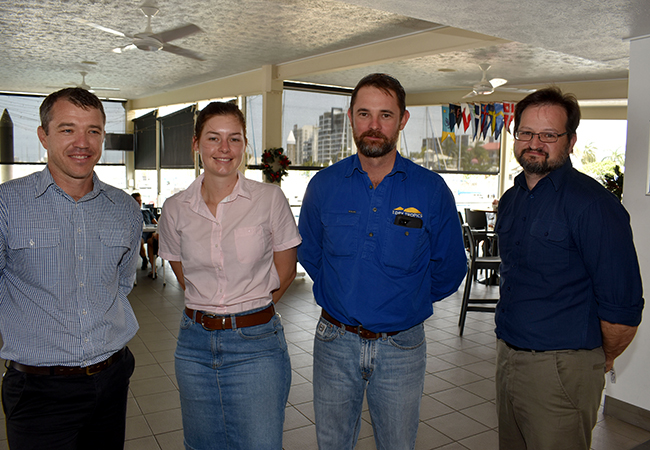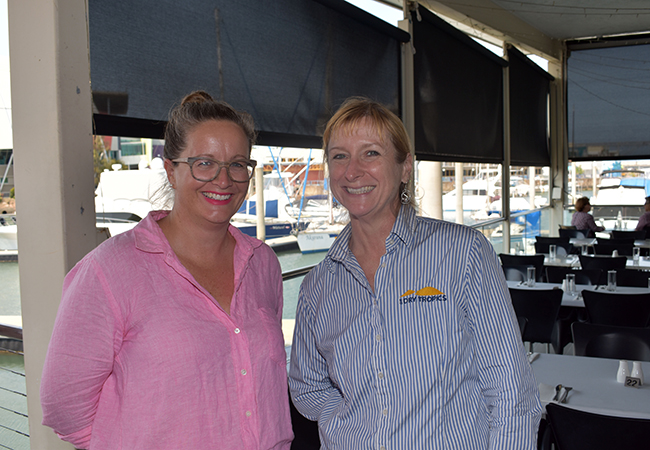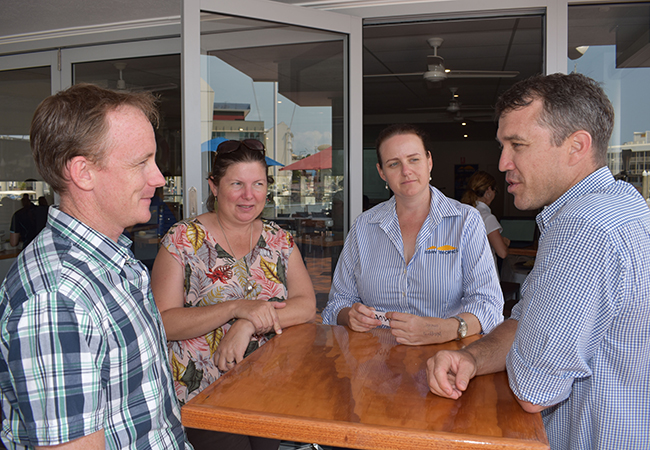Carl Mitchell, Principal Project Officer, Office of the Great Barrier Reef, presented an overview of the Paddock to Reef program
Grazing Science Forum discusses water quality results
NQ Dry Tropics hosted a Grazing Regional Integrated Science Forum in Townsville that brought together local grazing extension officers, government and science representatives to discuss the implementation of the Paddock to Reef (P2R) Integrated Monitoring, Modelling and Reporting program in the Burdekin region.
NQ Dry Tropics Sustainable Agriculture Program Manager Rob Hunt said the overall aim of the P2R program was to provide evidence of links between land management activities, water quality and reef health.
“Monitoring is used to measure the on-ground change in land management practices and water quality at the paddock scale. This feeds into catchment models that track progress towards water quality targets through the Great Barrier Reef Report Card.
“The forum is an opportunity for graziers, extension staff and industry representatives to hear about the latest science and discuss the future direction of regional water quality projects.
“NQ Dry Tropics is working with Burdekin graziers to implement changes that improve farm production and contribute to reef water quality targets.
“Graziers are proving that they can reduce their environmental footprint while also improving the viability of their farms
NQ Dry Tropics’ Sustainable Agriculture Program Coordinator, Rob Hunt, presented on water quality achievements in the Burdekin
Angus Thompson, of the Australian Institute of Marine Science, spoke about water quality impacts on corals
“We help achieve this through farm extension, and together, we’re demonstrating that more efficient farming practices and improved water quality are the same side of the coin; they are complementary.
“The Reef Report Card is showing there are improvements, but there is room for significant improvement.
“It takes time for the on-ground work to show up in the monitoring results, but we’re confident that the industry is taking steps in the right direction,” he said.
The forum covered adoption rates of best management practices, use of satellite imagery for ground cover monitoring, measuring sediment savings from gully remediation projects, and regionally-specific data on coral health and resilience.
Mr Hunt said these data sets feed into the Paddock to Reef program and ultimately determine the Reef Report Card result.
The Paddock to Reef program provides the framework for evaluating and reporting progress towards Reef 2050 water quality targets through the Great Barrier Reef Report Card. The program is jointly funded by the Australian and Queensland governments.
Bob Shepherd, Department of Agriculture and Fisheries, with NQ Dry Tropics Senior Grazing Field Officer Sam Skeat
From left: Adam Northey & Emily Barbi (Department of Agriculture and Fisheries), NQ Dry Tropics Grazing Field Officer Chris Poole, Carl Mitchell (Office of the Great Barrier Reef)
Gill McCloskey, of the Department of Natural Resources and Mines, with NQ Dry Tropics Biodiversity Project Officer Jaymie Rains.
From left: Paul Humphreys (Department of Agriculture and Fisheries), Megan Willis (Future Beef), NQ Dry Tropics Senior Grazing Field Officer Linda Anderson, Adam Northey (Department of Agriculture and Fisheries)
